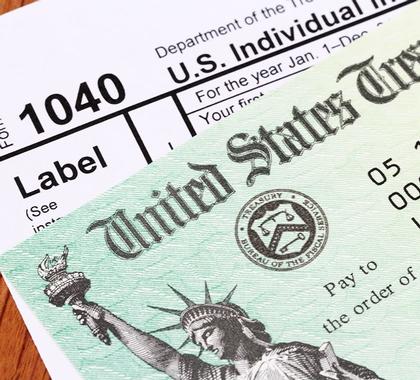Taxes on carbon dioxide emissions could damage the economy, a new analysis states.
Three different carbon-dioxide tax bills are under consideration in the current Congress: Sen. Chris Coons’ (D-DE) Climate Action Rebate Act of 2019 (CAR Act), Rep. Francis Rooney’s (R-FL) Stemming Warming and Augmenting Pay Act (SWAP Act), and Rep. Dan Lipinski’s (D-IL) Raise Wages, Cut Carbon Act of 2019 (RWCC Act).
The Tax Foundation modeled features of a carbon dioxide tax with various types of “income recycling,” or refunds to taxpayers.
Reducing Incentives
A carbon dioxide tax of $50 per metric ton that increased by 5 percent per year could collect $2.6 trillion over a decade, based on a static analysis that assumes the increased tax burden has no economic effects. But a dynamic analysis, which accounts for the tax’s negative effects on gross domestic product (GDP), shows the net revenue gain to the federal government could be much less than that, state Kyle Pomerleau and Elke Asen in “Carbon Tax and Revenue Recycling: Revenue, Economic, and Distributional Implications,” a report released by the Tax Foundation on November 6.
“A carbon tax would reduce after-tax wages and reduce the incentive to work, reducing GDP by 0.4 percent and full-time equivalent employment by 447,000 jobs,” Pomerleau and Asen write. Thus, the net increase in government revenue would be less.
“A carbon tax levied on all energy-related carbon emissions at a rate of $50 per metric ton and an annual growth rate of 5 percent would generate $1.87 trillion in additional federal revenue over the next 10 years,” Pomerleau and Asen state.
‘Tax Recycling’ Possibly Progressive
If the revenues were rebated to taxpayers in some way, as the three bills before Congress propose, the economic damage could be lessened, Pomerleau and Asen say.
For instance, every household could receive an equal “dividend” payment.
“A lump-sum rebate would increase the tax code’s progressivity significantly, but impact employment and output negatively,” Pomerleau and Asen write.
Such a tax would negatively affect incomes as “taxpayers would simply face the increased marginal tax rate on work from the carbon tax,” Pomerleau and Asen write.
‘Dividend Would Be Progressive’
A per-person “dividend” or rebate would benefit lower-income groups, say Pomerleau and Asen.
“A carbon tax and dividend would be progressive,” Pomerleau and Asen write. “After-tax income would increase for taxpayers in the bottom three quintiles. Those in the bottom quintile (0% to 20%) would see a 6.8 percent increase in after-tax income.
“Taxpayers in the top 20 percent would face a net tax increase as their expected carbon tax burden would be larger than the rebate,” Pomerleau and Asen write.
Payroll Tax Swap
A reduction in Social Security taxes (OASDI) would favor lower-income workers, say Pomerleau and Asen.
“A carbon tax paired with a cut in the employee-side payroll tax increases progressivity, output, and employment,” Pomerleau and Asen write.
“Using carbon tax revenue to reduce the employee-side of the OASDI payroll tax by 2.24 percentage points would increase the long-run size of the economy,” Pomerleau and Asen write. “On net, this swap would reduce the marginal effective tax rate on labor income, resulting in an increase in hours worked equal to 102,000 full time equivalent jobs.”
Business Tax Swap
Using carbon dioxide tax revenues to reduce taxes on businesses would raise the tax on wages and increase resources for business expansion, say Pomerleau and Asen.
“A carbon tax paired with a cut in the corporate income tax, permanent 100 percent bonus depreciation, and R&D expensing boosts output and pretax wages while decreasing progressivity and lowering employment,” Pomerleau and Asen write.
“We estimate that a $50 per metric ton carbon tax would raise enough revenue to reduce the corporate income tax rate to 11 percent, make 100 percent bonus depreciation permanent, and cancel the amortization of research and development costs scheduled to occur in 2021,” Pomerleau and Asen write.
“This swap would raise the effective marginal tax rate on labor earnings, but also reduce the cost of capital, leading to a larger capital stock,” Pomerleau and Asen write.
‘Particularly Destructive’
No rebate or revenue recycling scheme can fully mitigate the economic cost of a carbon-dioxide tax, says David Tuerck, president of the Beacon Hill Institute.
“Any tax distorts economic activity, and a carbon tax does so in a particularly destructive way,” Tuerck said. “By penalizing carbon emissions, the tax also penalizes the production of goods the emit carbon, which is almost all goods.”
Redistributing the revenue would not offset the negative economic effects, says Tuerck.
“The fact that the revenues raised by the tax are redistributed in part to individual households does nothing to lessen the burden on production and therefore the economy,” Tuerck said.
“A carbon tax shrinks the economy and then, in effect, lessens the burden of that shrinkage on those persons who are fortunate enough to get some of the revenue raised by the tax as partial compensation for the general burden being imposed,” Tuerck said.
Says Costs Outweigh Benefits
Carbon dioxide taxes and other measures to force people to cut carbon dioxide emissions are unnecessary and harmful, says Joseph Bast, a senior fellow at The Heartland Institute, which publishes Budget & Tax News.
“Some economists foolishly accept unsubstantiated claims that the ‘science is settled’ regarding the causes and consequences of climate change and then lend their names and the credibility of their profession to proposals, like the carbon tax, that promise to efficiently reduce ‘carbon pollution,'” Bast said.
“Even the most efficient way to reduce greenhouse gas emissions costs many times more than the value of any possible benefits that would come from a slightly cooler planet in the year 2100,” Bast said.
Hayley Sledge ([email protected]) writes from Dayton, Ohio.
Internet Info
Kyle Pomerleau and Elke Asen, “Carbon Tax and Revenue Recycling: Revenue, Economic, and Distributional Implications,” Fiscal Fact No. 674, Tax Foundation, November 6, 2019: https://heartland.org/publications-resources/publications/carbon-tax-and-revenue-recycling-revenue-economic-and-distributional-implications




